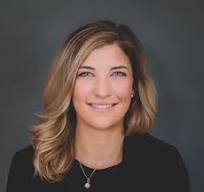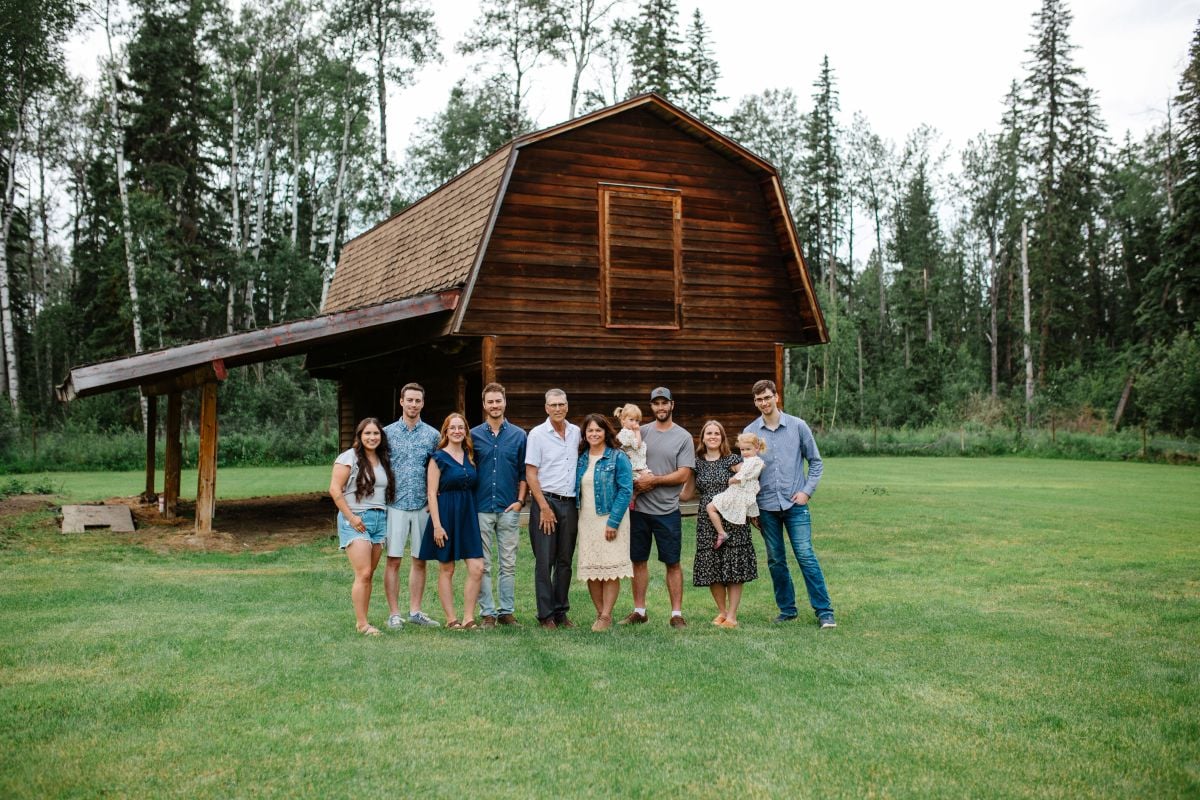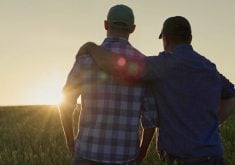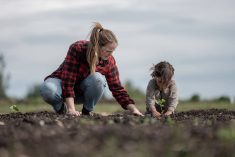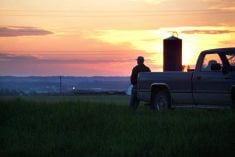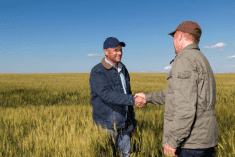For anyone affected by cancer, they have likely heard the adage that “a person doesn’t get cancer, the family does.”
When 45-year-old grain farmer KR Vreeling was diagnosed with multiple myeloma in 2009, he and his wife, Tammy, realized they needed to expedite their farm transition plan or, at the very least, that they needed a backup plan. With four children still at home on their Manning, Alta., farm this sudden turn of events would be life-altering for everyone, in more ways than one.
Farm succession frequently consists of two common sticking points. The pathway through and the outcome of both hinge on what seems like a never-ending string of decisions.
Read Also

‘No agenda, no attenda’: How to professionalize your family farm meetings
Establishing meeting ground rules can help a farm family find ways to communicate that work for the business and the family.
First, you have to figure out how to do it.
Second, you need to determine what a successful farm transition will look like to you and your family.
As if those two points aren’t headache-inducing enough, imagine that you must also add “expedited timeline” to the list. The situation becomes, as the old saying goes, a whole other kettle of fish.
But that’s exactly where KR and Tammy found themselves in the spring of 2009.
No strangers to big decisions
Something meaningful usually drives a big decision, especially when it comes to family.
For the Vreelings, it’s always been the desire to ensure opportunities for the next generation.
In 1949, KR’s maternal grandparents, the Luikens, and their eleven children emigrated from Holland to Hawk Hills, Alta., a six-hour drive north of Edmonton. They acquired a half section of land through a lottery. To gain title rights they had to clear 40 acres in three years as stipulated by the farm development lease program. In 1953, KR’s paternal grandparents also made the long trip from Holland to settle on a farm near Grand Prairie.
KR’s parents took over the farm in 1967. In 1984, a 21-year-old KR, who was farming with his father and brother, was ready to make his first business decision. He purchased land at a time when it seemed crazy to farm as there wasn’t much money in it, but “you did it anyway because you loved it.” Then, in 1987, KR launched an independent fertilizer company to generate additional income.
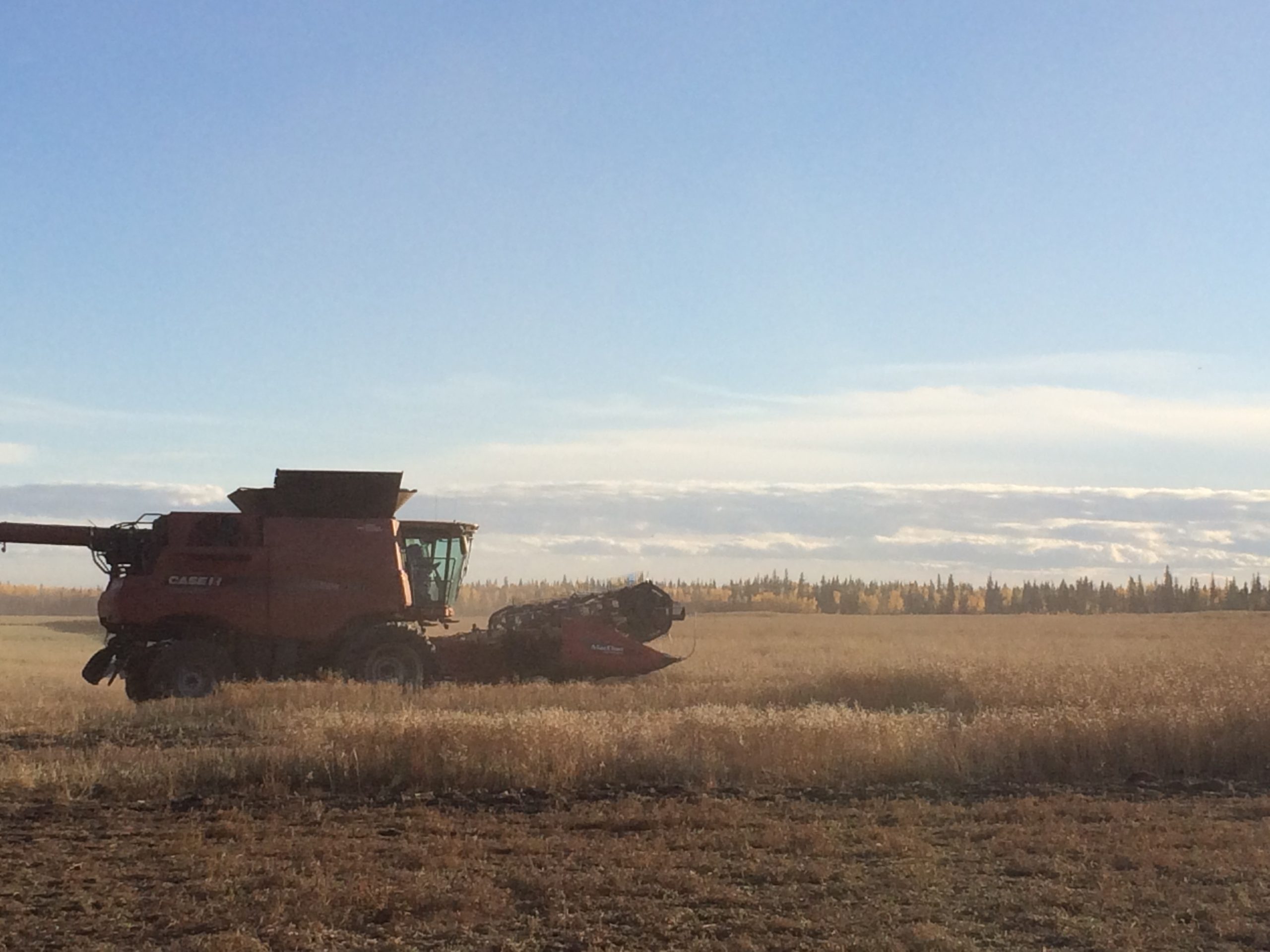
Things were looking up. He married Tammy in 1989, and the fertilizer company led to a trucking company. There were trucks on the road 24 hours a day: five anhydrous ammonia trucks, a water truck, a log truck and a propane truck.
But managing a farm, fertilizer and trucking company took its toll. They didn’t have enough time for the work they wanted to devote to the farm, and the trucking company phone would ring constantly, sometimes in the middle of the night. It was time for another big decision.
And so, in 2007, they sold the fertilizer business and by 2009, they had restructured the farm in a way that allowed KR to spend more time with his family and to coach hockey.
The worst news
But then, in the spring of 2009, KR received his diagnosis.
He underwent eight weeks of chemotherapy and radiation to shrink tumours in his back and tailbone. His brother, Doug, helped manage the farm and KR’s son, Michael, was on the farm full time for seeding, spraying and harvest. In August that year KR had a stem cell transplant and spent three weeks at the Cross Cancer Centre.
“It was rough,” says KR.
One day, at a medical appointment, KR mentioned to the nurse that no one had ever given him a prognosis.
“I told her, ‘I have a family and young kids, a business…,” he says. “The nurse said, ‘I will tell you, but you have to decide what you will do with the information.’ The nurse went on to explain that typically this cancer is an ‘old man’s’ cancer and the averages (of survival) is that 50 per cent are gone in five years. That’s scary information for anyone to hear.”
KR was home in time for September harvest, and he was able to sit in the shop for an hour a day. But the shock of what the nurse told him weighed heavy.
KR and Tammy decided it was time to train Michael, 18, how to run the farm within five years.
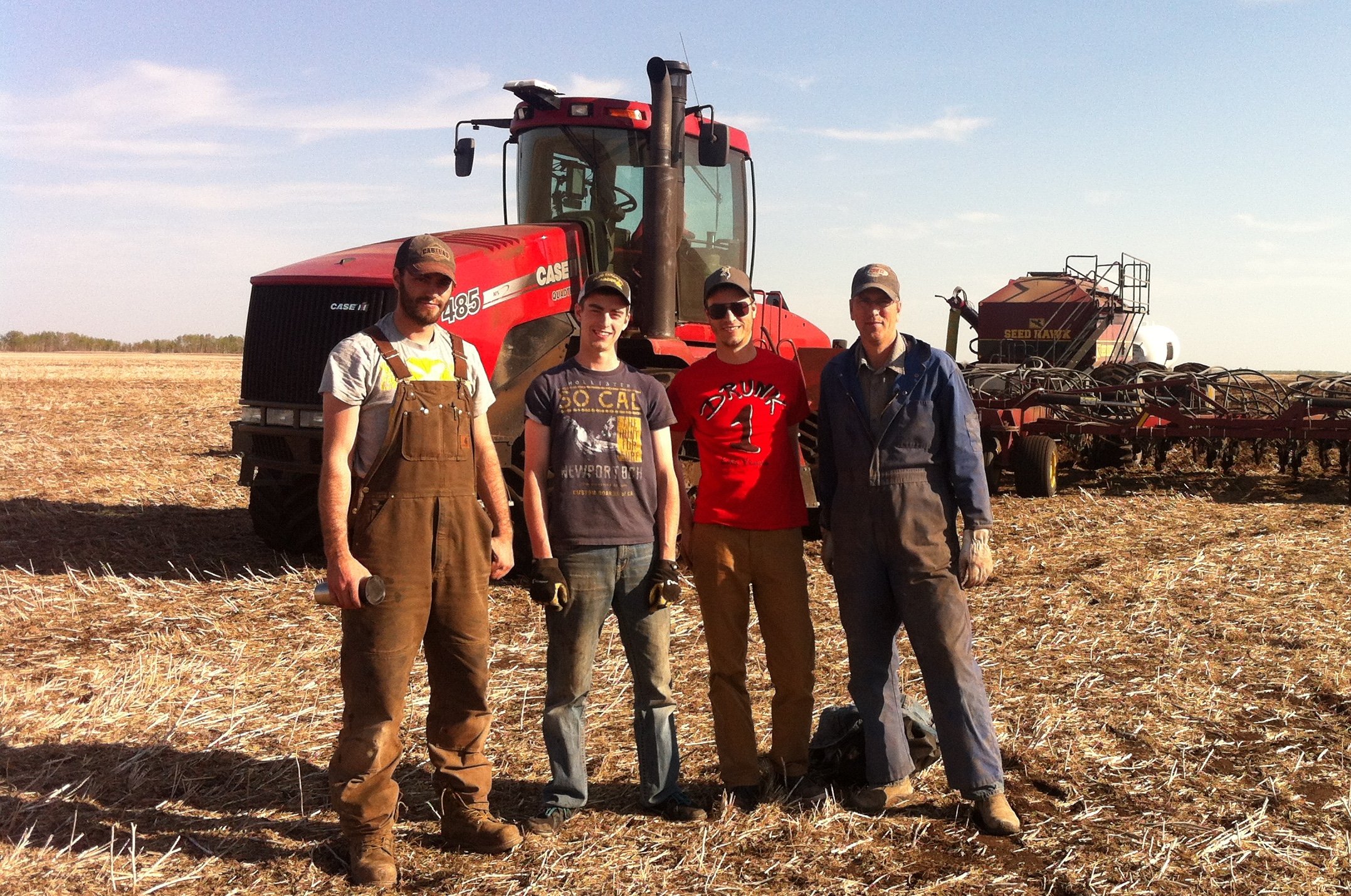
When, in spring 2010, Michael rolled his ankle, he and KR were forced to switch roles. Michael was in the office and KR was back out in the yard. This turned out to be a blessing in disguise as it provided Michael with a “trial by fire” opportunity to hone his managerial skills.
Five years after KR’s cancer treatment younger son, Ryan, who was in Grade 12, and KR were on a trip to Fairview College where Ryan was working towards his green certificate credits. KR asked him what his plans were for the future. Ryan, who had showed an interest in the farm, replied, “I guess I can’t farm, because Michael is farming.”
“I told him, ‘Why not? The farm is big enough for two. If you want to farm, we will figure it out. There is more than enough farm to make it work’,” says KR.
Michael continued to farm, coming back home for seeding, spraying and harvest, while attending trade school at the Northern Alberta Institute of Technology to receive his journeyman oilfield instrumentation certification. The family thought it would be a good idea to have a fallback career in case farming didn’t work out. Ryan ended up at Olds College and received his diploma in agricultural production.
Meanwhile, the five-year plan had expired, and the family moved on to another round of decisions.
The transition trial
Cancer was always in the back of KR’s mind, so getting the succession plan done was not an issue of when, but how.
The Vreelings attended a session with Elaine Froese, a farm family transition expert, and Jonathan Small, an advisor with MNP at the time. KR also attended Syngenta’s Grower University in London, Ont., so that he could learn how to develop and execute their plan.
KR learned that good advisors ask hard questions. When Small asked “Is this business worth transitioning?” the wind momentarily went out of KR and Tammy’s sails. They were proud of what they had built, but they also understood and appreciated the objectivity of the question.
Small met with each family member and then met with them as a group. After the initial discovery and analysis process, Small told KR and Tammy they should be proud of their kids as they have a strong work ethic and no entitlement issues. KR says that comes from “how we live our life day-to-day more than anything. We tried to teach them the value of money, and hard work. If you want something in this world, you’ve got to work for it. They put hours in, and we paid them.”
When Small put the succession plan on the table KR remembers sitting back and thinking, “Perfect, we’ve accomplished our goal!” He remembers Small asked, “So, when are we going to do this?” to which KR replied, “Well, not today.” Small countered with, “Well, why not today?”
“We’re missing a step. When is it ‘our farm’, when we are partners with our kids?”
– KR Vreeling
KR felt the kids weren’t quite ready and told Small, “It doesn’t feel right to us. On Monday it’s ours and on Friday it’s theirs? We’re missing a step. When is it ‘our farm,’ when we are partners with our kids?”
They decided on a three-year trial, making all partners thirds in the business. “We drew a line in the sand and did an asset valuation on what the farm is worth today,” explains KR. “Then, we’d draw a line again to figure out if there was any growth. If they checked the boxes then we would divide up the growth three ways and execute the succession plan.”
KR had a list of things he wanted to check off before transitioning the business. “The trial was the concession,” says KR. “They needed to show me they could run the farm. Number one was to take over marketing plans, get 1A licenses, and be able to do the books and at the end of the day still be brothers. We stipulated that if you can’t work together, we are not doing this because it isn’t worth it.”
The mechanics of a good decision
If there is anything I took from speaking with KR and Tammy, it’s their approach to decision-making and how they work together as partners to make decisions no matter how hard the situation. They have a process. Their ability to analyze, communicate, decide and move forward is unwavering. They have a quiet confidence — humble yet assured — and follow their values as they step into the unknown.
So, what does a successful family succession and legacy look like? I think it’s an ability to make a series of good decisions as a family — even when it’s hard or the odds are against you — for the long-term success of the family. That’s exactly what the Vreeling family has always done.
KR’s idea of implementing the trial period allowed space to talk about the real issues and to set boundaries. But how do you get people to do the hardest thing on the farm: talk?
Tammy told them “I am the mother and wife, and I do not want to be in the middle. You’ve got to figure out a way to deal with it. If something is going on you need to talk about it, no complaints, and I don’t want to hear it.”
The other stipulation was that no one lives at the shop. It was important to them that when they go home, they leave work at work, creating a respect for the business of farming. “You’re not ‘just’ a farmer. This is a real thing, a real job and a real company,” says KR. “We tried to instill this respect and that it should all be treated with importance.”
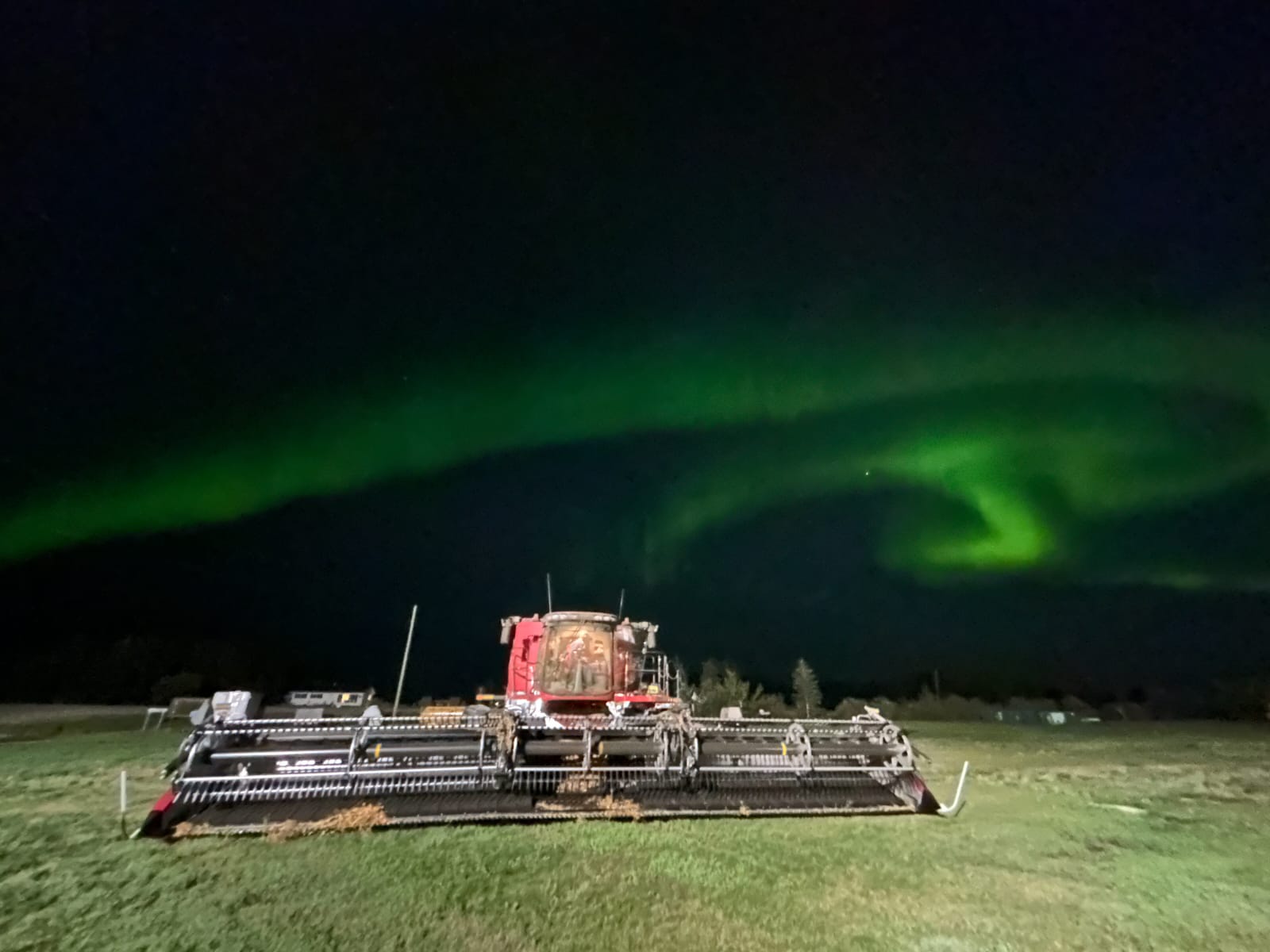
The boys have found how to work together. Michael is the visionary, general manager and makes the marketing decisions. Ryan is the integrator, doing the books and developing crop plans. Tammy and KR are still major shareholders, and the family holds an annual general meeting each summer.
KR and Tammy had offered each of their children the opportunity to farm, but Sean and Carter wanted off-farm careers. Though both still help when they can, their parents are proud that the two boys are successful accountants in Peace River.
Ryan and Michael have also started a successful independent ag retailer just as their father did.
Letting go is hard
The challenge of letting go is as real a challenge as figuring out how to structure the handover.
KR says, “I want to drive tractor in the spring because I love seeding and I love combining in the fall. I still want to have value, and I want to see the success of the farm.”
KR and Tammy accept that sometimes you just need to park your pride. As Tammy notes, KR didn’t do everything the same way his dad did either.
“Our boys needed to find their own path,” she says. “As long as you can maintain a relationship with them, some things they have to learn on their own. We had similar complaints as every other farm founder going through this, wondering why wouldn’t they just ask? We could save them so much grief!”
Why didn’t they ask? Tammy and KR know now that it’s because the boys wanted to show them that they could do it. “They didn’t do it on purpose to hurt us; they did it to prove themselves,” says Tammy. “When we look at those boys now, they do things way better than we did.”
Each generational player — the now and the next — must define and redefine their roles.
KR maintains that not working on a succession plan is a selfish thing to do. “Part of the succession plan is that you don’t know how much you are in the way, a limiting factor. Once you move out of the way there’s a youthful enthusiasm that you start to really appreciate.”
He suggests getting started as soon as possible, because “You can’t rush it.”

